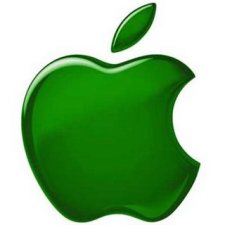 The U.S. Chamber of Commerce has been hemorrhaging members in recent weeks after opposing legislation curtailing greenhouse gas emissions. Today, Apple joined companies like Nike, Exelon and Pacific Gas & Electric, who have also quit or scaled down participation in the organization to take a stronger stance on climate change issues. But it’s the first technology company to do so — which could touch off a trend in eco-conscious Silicon Valley.
The U.S. Chamber of Commerce has been hemorrhaging members in recent weeks after opposing legislation curtailing greenhouse gas emissions. Today, Apple joined companies like Nike, Exelon and Pacific Gas & Electric, who have also quit or scaled down participation in the organization to take a stronger stance on climate change issues. But it’s the first technology company to do so — which could touch off a trend in eco-conscious Silicon Valley.
The Chamber of Commerce is one of the most powerful lobbying groups in Washington, supposedly representing the interests of 3 million dues-paying companies of all sizes. But the rift intensified last week when the Environmental Protection Agency released plans to reign in emissions from 14,000 coal-fired power plants. The Chamber accused the agency of moving forward with regulations that would harm U.S. businesses in an already shaky economy.
 “While we’ll continue to represent the broad majority of our membership on this goal, we recognize that there are some companies who stand to gain more than others with the current options on the table,” wrote Chamber spokesman Eric Wolschlegel in an e-mail to the Washington Post earlier this week. Basically, the majority of the organizations members, particularly small business already under financial strain, don’t have the same capabilities to meet lower emissions targets.
“While we’ll continue to represent the broad majority of our membership on this goal, we recognize that there are some companies who stand to gain more than others with the current options on the table,” wrote Chamber spokesman Eric Wolschlegel in an e-mail to the Washington Post earlier this week. Basically, the majority of the organizations members, particularly small business already under financial strain, don’t have the same capabilities to meet lower emissions targets.
Tension has been building to this point for weeks now, as the organization actively works against the Waxman-Markey climate bill that would institute a carbon trading system if approved by the Senate. One Chamber of Commerce official went so far as to call global warming and the impact of greenhouse gases into question — saying that both merited further study.
AI Weekly
The must-read newsletter for AI and Big Data industry written by Khari Johnson, Kyle Wiggers, and Seth Colaner.
Included with VentureBeat Insider and VentureBeat VIP memberships.
This antiquated attitude, and thus-far inarticulate posturing on behalf of the chamber has provided ripe opportunities for companies like Apple to spotlight a new, greener image. The Cupertino, Calif., computer maker even divulged its carbon footprint, pegging it at 10.2 million tons annually, and says it has calculated emissions for each one of its new products in an effort to very visibly shrink its output. You may have noticed that more of its product casings are being made out of aluminum instead of plastic — making them more easily recyclable. It has also stopped using several other harmful chemicals in its manufacturing processes.
“Apple is committed to protecting the environment and the communities in which we operate around the world,” Apple vice president of worldwide government affairs, Catherine Novelli, wrote in a letter to U.S. Chamber of Commerce president and CEO Thomas Donohue (as reported by the San Jose Mercury News). Apple has also claimed to be the only electronics company to break down its emissions to the product level.
Surprisingly, PG&E was the first company to bail from the chamber last month, announcing that it would not renew its membership next year — a genius stroke of public relations that may just elevate it as the most progressive utility in the country. It’s already been a leading player in the deployment of smart meters — advanced electrical meters that transmit energy consumption data between utilities and their customers in real time. Now it’s successfully co-opting the movement against emissions. Generating the bulk of its energy from natural gas and renewable sources, it doesn’t have a coal-fired legacy to weigh it down. Clearly, its decision has already sent a ripple through the utility business, with New Mexico provider PNM Resources quickly following suit, and Exelon — covering 5.2 million homes in Illinois, Pennsylvania and New Jersey — jumping on board only a week later. It’ll be interesting to see which utilities come next.
Apple, however, has distinguished itself, first for quitting immediately (not just declining to renew), and second, as the first Silicon Valley force to turn its back on the Chamber of Commerce — significant because the region is home to not only a strong environmental movement, but a cadre of bigwig companies greening their practices ahead of government policies. Will Cisco Systems, winner of the Chamber’s Corporate Citizenship Award for International Community Service in 2007, be willing to follow in Apple’s footsteps? Or Intel or IBM (all companies that have been beating the drum on Smart Grid development)?
In the meantime, the Chamber has been striking back…well, sort of. In a public statement released Sept. 29, Donohue said the organization “continues to support strong federal legislation and a binding international agreement to limit carbon,” and that “some in the environmental movement claim that, because of [the Chamber’s] opposition to a specific bill or approach, [it] must be opposed to all efforts to reduce greenhouse gases or that [it denies] the existence of the problem. They are dead wrong.” He didn’t specify how these goals should be achieved. The Chamber has also threatened the EPA with a lawsuit for overstepping its bounds of policymaking and enforcement.
Here’s a copy of the resignation letter Apple’s Catherine Novelli sent to the Chamber:
Apple Chamber http://d1.scribdassets.com/ScribdViewer.swf?document_id=20750845&access_key=key-7wfjhldu1gqx93v5dlo&page=1&version=1&viewMode=
 VentureBeat is hosting GreenBeat, the seminal executive conference on the Smart Grid, on Nov. 18-19, featuring keynotes from Nobel Prize winner Al Gore and Kleiner Perkins’ John Doerr. Get your early-bird tickets for $495 before Oct. 10 at GreenBeat2009.com.
VentureBeat is hosting GreenBeat, the seminal executive conference on the Smart Grid, on Nov. 18-19, featuring keynotes from Nobel Prize winner Al Gore and Kleiner Perkins’ John Doerr. Get your early-bird tickets for $495 before Oct. 10 at GreenBeat2009.com.
VentureBeat's mission is to be a digital town square for technical decision-makers to gain knowledge about transformative enterprise technology and transact. Learn More